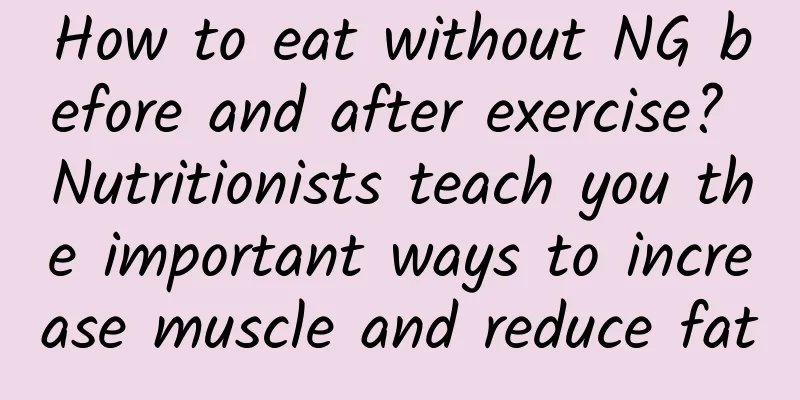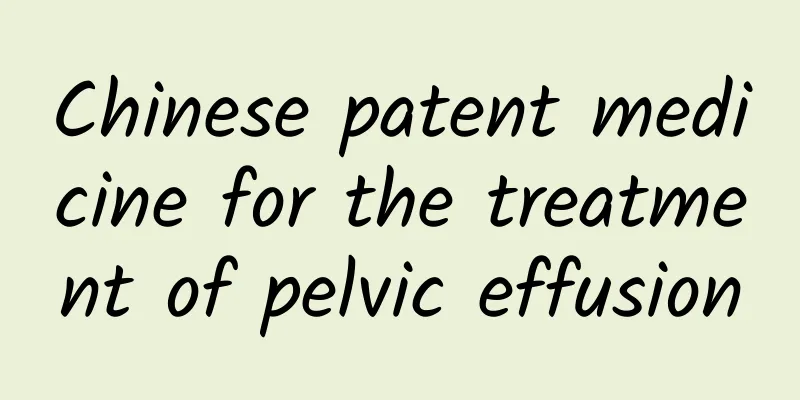How to eat without NG before and after exercise? Nutritionists teach you the important ways to increase muscle and reduce fat

|
"Does it mean I can't eat when I'm exercising? I'll gain weight more easily?" Should I drink whey protein after exercise? "How to eat to gain muscle and lose fat?" In the past year or two, the proportion of people exercising has been increasing. When nutritionists give speeches or write related columns, they are always asked what to eat before and after exercise. For example, many people seek supplements before and after exercise and start eating low-carb sports salads, drinking whey protein after exercise, etc. This column will share and debunk common myths, and also share with you what nutrients are easily overlooked! Not every sport requires sports supplements! This is the most common misconception. Many people read information online or hear sharing from coaches and think, "Yes! Exercise is about replenishing!" But have you ever thought about the intensity of exercise? If I just briskly walk for 20 minutes and do biceps exercises with dumbbells for 5 sets of 10 reps each, do I still need to eat? Eating too much calories without consuming many calories can actually cause a burden! So, the focus will be on the intensity of your exercise! If the intensity of exercise is greater than the heart rate of 130-140, the total exercise time exceeds one hour, and the calories consumed are about 200-300 calories or more, then you really need exercise supplements! Should you eat before exercising? What should I eat? Generally speaking, you need to eat a little carbohydrate food before exercise, such as small biscuits. The total calories should not exceed 100 calories. These biscuits will not take up too much stomach space, avoiding stomach discomfort caused by strenuous exercise. Moreover, small biscuits will slowly release carbohydrates into the blood to replenish the blood sugar needed during exercise. Nutritionists also recommend that in addition to continuing to drink small amounts of water during exercise, you can also consider drinking sugar-free black coffee! The caffeine in black coffee can boost athletic performance, allowing you to exercise longer! The key to pre-workout supplementation. (Photo/provided by Good Food Class) If you want to gain muscle and lose fat, what should you eat after exercise? Is eating high protein enough? Almost everyone in the gym has a bottle of whey protein drink, as if eating protein is enough, but this is a wrong idea. It depends on whether the purpose of exercise is to lose fat or gain muscle. People who want to lose fat need high-quality protein in their diet after exercise, but they need to reduce the proportion of carbohydrates in order to lose fat. For example, tea eggs or a piece of Shufei chicken breast, unsweetened soy milk or half a bag of nuts sold in convenience stores do not contain too many carbohydrates and have sufficient calories. They are all good sources of supplementation for people who want to lose fat. If you want to gain muscle, the human body needs to quickly absorb amino acids into the muscles in order to repair and promote muscle growth. Therefore, more attention should be paid to sufficient and quickly absorbed carbohydrates. The ratio of carbohydrates to protein is about 2-4:1, which can promote insulin secretion and help amino acids quickly enter the muscles for use. It is recommended to consume sugary soy milk, yogurt and bananas, or eat them with nuts after exercise. Because the high-quality protein in nuts can also help us repair muscles after exercise, nuts are also a good choice after exercise. For example, nuts containing dried fruits, or buying a box of sugary yogurt and sprinkling half a bag of nuts on it, also conforms to the principle of supplementation for muscle gain after exercise. In addition, nutritionists remind everyone that athletes should not only pay attention to protein and carbohydrates, but also pay attention to the intake of micronutrients! The key to post-workout supplementation. (Photo/provided by Good Food Class) Eating nuts after exercise can replenish micronutrients, prevent cramps and weak legs, and enhance the effectiveness of exercise! Nuts are not only nutrient supplements, but also have antioxidant and anti-inflammatory effects. Nuts contain high-quality fatty acids such as oleic acid and α-linolenic acid. Studies have shown that supplementing with α-linolenic acid can synergistically reduce inflammatory responses with fatty acids such as EPA, and may help increase muscle strength and affect the efficiency of cell energy utilization. Eating more nuts is a good way to supplement exercise! In the past, studies have shown that consuming nuts can help improve exercise effectiveness! In a 2014 study, athletes were asked to eat 75 grams of almonds per day and do road cycling training. The results showed that the group that ate almonds could ride farther in the same amount of time, which means that eating almonds can lead to better athletic performance and improve the body's utilization of carbohydrates! People who do exercise must have experienced "iron legs" and "cramps". Iron legs are not caused by lactic acid accumulation as rumored on the Internet, but a symptom of inflammation! In the past, it has been found that regular intake of antioxidants can effectively avoid the symptoms of iron legs. For example, supplementing with sufficient vitamin E can effectively reduce the problem of delayed onset muscle soreness. When it comes to cramps, in addition to the common calcium imbalance that can cause cramps, magnesium deficiency can also easily cause cramps! Nuts are also rich in magnesium. Long-term and normal intake can help us replenish magnesium ions and prevent exercise cramps. Eat nuts to supplement magnesium to prevent cramps. (Photo/provided by Good Food Class) Nuts are the type of food we most often overlook. Eating some nuts on a daily basis and after exercise can help replenish micronutrients, prevent sports problems, and make exercise more effective! Nutritionists recommend that when choosing, you should choose products with complete packaging to avoid problems with oil consumption and fatty acid oxidation. You should also choose products with a safe record seal, which means that the food factory can achieve traceability management, giving consumers greater peace of mind! This article comes from Good Food Class ※For more information, please see "Good Food Class" |
Recommend
Are you under a lot of pressure and can't stop talking? 10 tips to control your appetite and lose weight easily
When people are under a lot of pressure and want ...
Is graying of hair here a sign of a short life? Take a self-test!
On this day, I was receiving a young lady named X...
Which female compatriots are prone to ectopic pregnancy
Nowadays, the incidence of ectopic pregnancy can ...
What causes less menstrual flow and dark color?
Small amount of dark menstrual flow may be caused...
How can women prevent pelvic inflammatory disease?
Prevention of pelvic inflammatory disease has bec...
What are the effects of congenital absence of vagina on the body?
Although the causes of congenital absence of vagi...
Specific nursing measures for bacterial vaginosis
Bacterial vaginosis is a common type of bacterial...
Is painless abortion really painless?
Is painless abortion really painless? 1. Painless...
Does eating dinner make you fat? 5 Questions and Answers on Diet and Weight Loss Hotline
Is it easy to gain weight by eating dinner? Wheth...
Is it normal to have a miscarriage of the first child? Expectant mothers don’t need to be too sad or force a miscarriage
Many women experience miscarriage after becoming ...
What causes adnexitis in women?
Adnexitis mainly refers to the inflammation of th...
What should I do if pelvic effusion recurs?
Pelvic effusion is one of the common gynecologica...
What is the treatment for polycystic ovary?
When a woman has polycystic ovary syndrome, multi...
How long does it take to treat fallopian tube tuberculosis?
Treatment of tubal tuberculosis usually takes 6 t...
What is the difference between abortion and induced labor?
Many women do not know how much harm induced labo...









